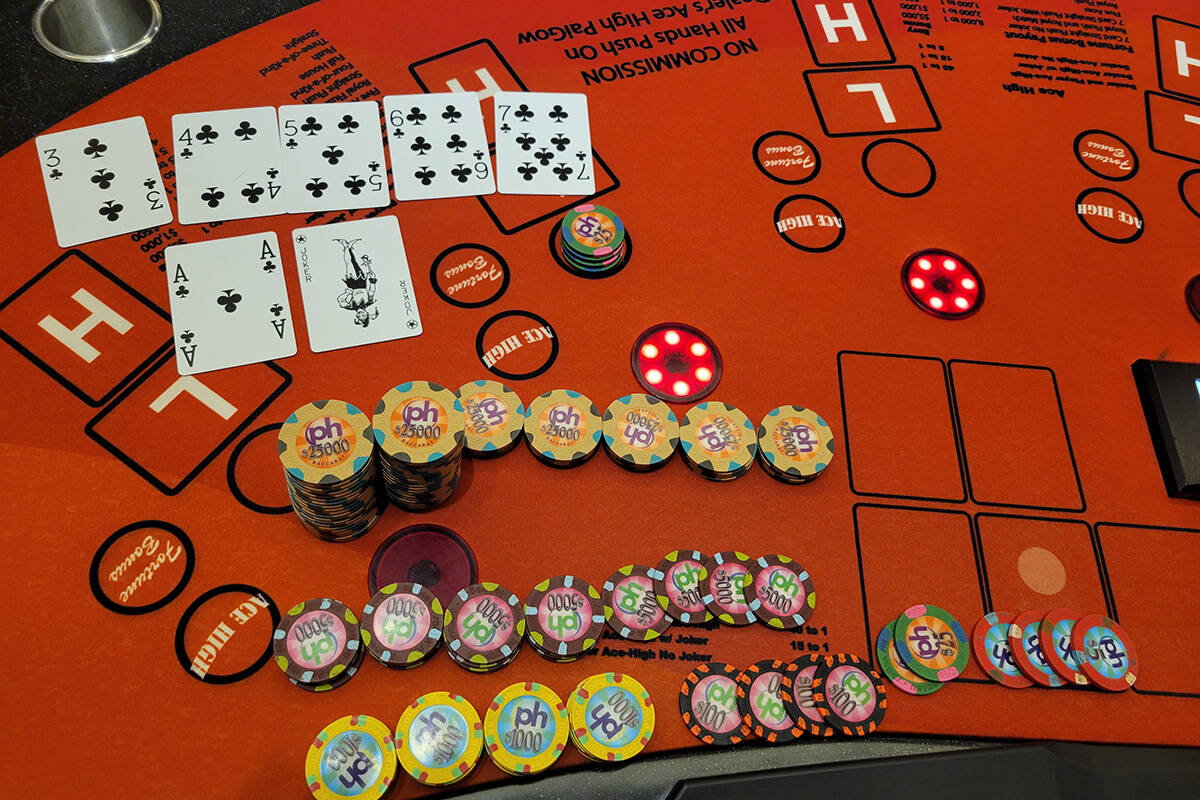Everything you need to know about casino progressive jackpots

Hitting a massive jackpot at a Las Vegas casino is a dream for novice players and seasoned gamblers alike. Everyone wants to win big in Sin City.
Progressive jackpots are among the most enticing of all the ways to win. The sums of money often associated with progressive jackpots are, in some cases, life-changing.
Before your next visit to the casino, here are five things you should know about progressive jackpots based on Nevada gaming regulations.
How progressive jackpots work
Progressive jackpots are the accumulation of a portion of each player’s wager, adding to a prize pool that grows over time. The longer that no one wins the jackpot, the bigger it gets.
As a result, progressive jackpots can get very large.
These jackpots can range from four-figure prizes to millions of dollars, depending on the game and participation.
Types of casino games with progressive jackpots
When most gamblers hear the term “progressive jackpot,” they probably think of slot machines.
Some of the biggest slot titles in Las Vegas casinos, such as “Megabucks,” “Money Mania,” and “88 Fortunes” are progressives.
But progressive jackpots are found on more than just slots.
Increasingly, casino table games now feature a progressive jackpot. Variations of blackjack, roulette and poker can have a progressive jackpot. These jackpots are often distinct and separate from the actual table game itself and are awarded for a side bet offered on the table.
Outside of casinos — and Nevada for that matter — lotteries employ progressive jackpots. Mega Millions and Powerball are examples of progressive lottery jackpots.
Ways to win a progressive jackpot on slots
There are multiple ways to win a progressive jackpot on a slot machine, depending on the game itself.
The most common way to hit the big jackpots is to bet big. Max betting is sometimes required for players to be eligible for a progressive jackpot.
Occasionally, winning combinations of specific symbols — such as landing multiple jackpot symbols on certain pay lines — can trigger a progressive.
Other slot machines require a player to be in a bonus round for the progressive jackpot to hit.
Of course, there’s also the pure random win. In some games, progressives can be triggered randomly during the main game or bonus rounds, regardless of bet size or other playing conditions.
Odds of winning a progressive jackpot
All progressive games rely on random number generators to determine the outcome of each spin or bet. These RNGs ensure fairness but also mean that winning is largely random.
Several factors influence the odds of anyone hitting a progressive jackpot.
As mentioned above, bet size is one of those key variables. Some games increase the chances of hitting a jackpot with larger bets.
Each game has a return-to-player, or RTP, percentage. The RTP percentage reflects how much of the total money wagered will eventually be paid back to players. Games with higher RTP percentages may offer smaller but more frequent payouts, while lower RTP games often have larger jackpots.
Types of progressive jackpots
While many progressive jackpots are linked across multiple Las Vegas casinos, that is not always the case. There are three main variations of progressive jackpots.
- Standalone: Available only on a single machine or game, these jackpots are smaller but have less competition.
- Local: Shared across multiple machines at the same location or online casino.
- Network: Linked across different casinos or platforms, offering massive jackpots, such as those in the Wheel of Fortune series.
Bonus
What would a story about jackpots be without a bonus? The first progressive jackpots were first introduced by International Game Technology, a multinational manufacturer and supplier of casino games, in 1986. That was the year “MegaBucks” first appeared. In February 1987, a player hit the very first progressive jackpot for $4,988,842.17.
David Danzis can be contacted at ddanzis@reviewjournal.com or (702) 383-0378. Follow AC2LV_Danzis on X.